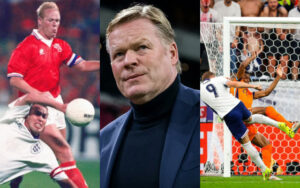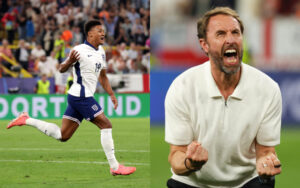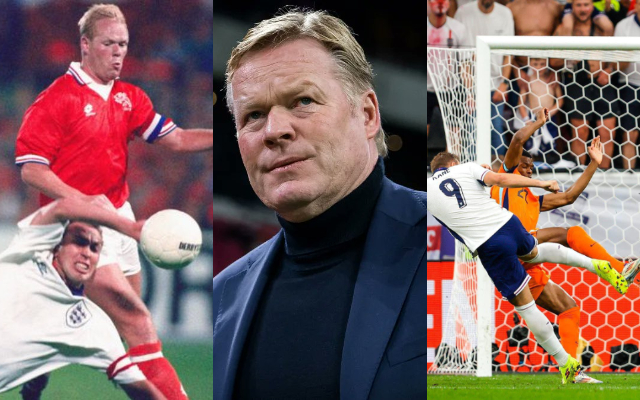
The Euro 2024 semi-finals showcased two intense football rivalries. And in the final analysis, the results could be seen as atonement and revenge for past injustices. Spain, who had suffered so much at French hands, reversed the result of the 1984 final that they lost, while England earned a measure of retribution for a hugely controversial defeat to the Netherlands in 1993, which saw them miss out on the 1994 World Cup.
For long-time followers of English football, the irony of Ronald Koeman being on the Dutch bench as coach would have been especially delicious. Back in October 1993, Koeman had been the central character as the Netherlands won 2-0 in Rotterdam, in a match that was effectively a golden ticket for the World Cup in the USA.
It was Koeman that Karl-Jozef Assenmacher, the German referee, failed to send off despite a clear professional foul on David Platt on the edge of the box. Whether it was a penalty or not was a borderline call, but with no other defender in sight, it was blatantly obvious that Koeman should have seen red. Instead, minutes later, he chipped a free kick over the England wall – a retake, after Paul Ince blocked the first attempt by charging early – to give the Dutch the lead, and Dennis Bergkamp added a second after controlling the ball with his arm. Graham Taylor, the much-maligned England manager who had earlier been called a “Turnip” by the tabloids, left the De Kuip Stadium after asking his staff to thank the linesman for getting him the sack.
More than three decades later, at a raucous Signal Iduna Park in Dortmund, it was England’s turn to benefit from poor officiating. “As a defender, I think it’s an absolutely disgraceful decision,” said Gary Neville, capped 85 times by England, of the VAR call that saw Harry Kane and England given an 18th minute penalty. Alan Shearer, once his captain with England, agreed. “There’s no way that was a penalty,” said Shearer. “He [Denzil Dumfries] just goes in naturally to block the shot. It’s not a penalty for me.”
For the Latest Sports News: Click Here

The decision transformed the game, though England who produced by far their most accomplished display of the tournament, left it very late to clinch victory. Again, the parallels with the past couldn’t be ignored. Platt, the wronged player in 1993, made his reputation in the lower leagues with Crewe Alexandria. Ollie Watkins, whose clinical finish from the acutest of angles took England into the final, played 221 matches in the lower divisions before transferring to Aston Villa. The club where Platt played and Taylor managed when England honours came their way? Villa.
For Spain, it was not a refereeing blooper that had to be put right. The mistake that Luis Arconada made from a Michel Platini free kick in the Euro 1984 final haunted the national team for years. And defeats to France at Euro 2000 and in the 2006 World Cup ensured that the Raul-Fernando Hierro-Morientes generation, which had helped restore Real Madrid to former glory, would leave the international arena without the medals many thought they would win.
Though they would go behind on the night, to just about the only bit of magic Kylian Mbappe produced all tournament, Spain were deserving winners over the 90 minutes. France rallied strongly in the second half, with Mbappe and Theo Hernandez missing excellent chances to equalise, but Spain showed that they had the steel to go with the silky skills of Lamine Yamal.
What both matches also showed was the value of an old-fashioned centre forward. In this age of false nines and wingers tucking in, you still need players who can finish off the chances created. England, so dreadfully mediocre before upping their game in the semi-final, have two superb understudies to Kane in Watkins and Ivan Toney. Watkins’ finish showed what so many other teams have lacked in this tournament, and while Spain will undoubtedly start favourites in Sunday’s final, England are underdogs with bite.
Also Read: Watkins’ Stoppage-Time Winner Propels England to Euro Final




